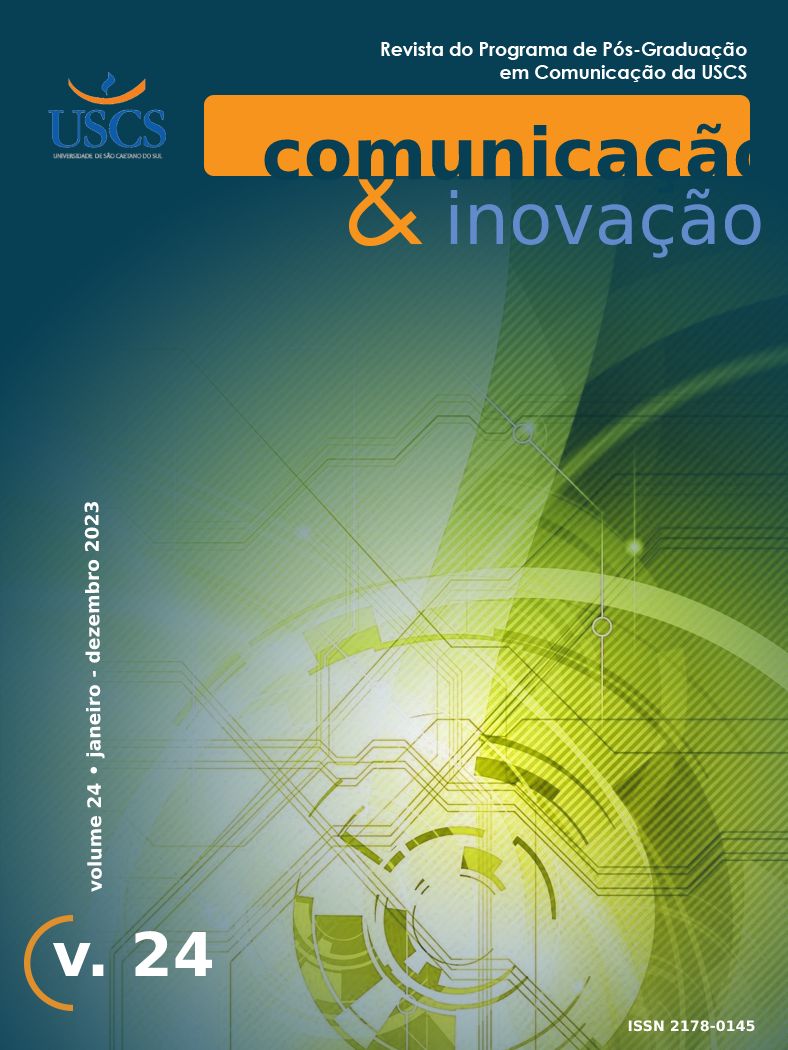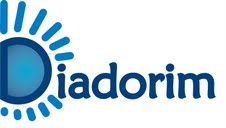Political sociology and digital governance
recruitment profile of government-appointed advisers to the Internet Steering Committee (2004-2020)
DOI:
https://doi.org/10.13037/ci.vol24.e20239165Keywords:
CGIBr, Digital governance, ProsopographyAbstract
The Internet Steering Committee (CGIbr) is the agency responsible for Internet governance in Brazil, that is, the regulation of its administrative and structural elements. It is formed by 21 members, 8 of which are appointed by the government. This work aims to analyze, through the prosopographical method, the profiles of the nominees between the years 2004 and 2020. The professional and educational career paths of the councilors were analyzed. In addition to analyzing nomination patterns, the work also seeks to determine if there were changes in these profiles between governments. It was possible to identify that while the first formations, in Lula's government, presented a certain heterogeneity of profiles, with the presence of academics, from the Dilma government onwards a pattern of homogenization of the nominees is established, with emphasis on post-graduated bureaucrats of the federal administration.
Downloads
References
ABÍLIO, Ludmila Costhek. Uberização: a era do trabalhador just-in-time?. Estudos Avançados, São Paulo, v. 34, p. 111–126, 2020. Disponível em: <https://doi.org/10.1590/s0103-4014.2020.3498.008>. Acesso em 16/07/2021.
AUTOR. 2021.
BAUMAN, Zygmunt et al. Após Snowden: Repensando o Impacto da Vigilância. Revista ECO-Pós, Rio de Janeiro, v. 18, n. 2, p. 8–35, 2015. Disponível em: <https://revistaecopos.eco.ufrj.br/eco_pos/article/view/2660>. Acesso em 16/07/2021.
BRASIL. Decreto nº 4.829, de 3 de setembro de 2003. Dispõe sobre a criação do Comitê Gestor da Internet no Brasil - CGIbr, sobre o modelo de governança da Internet no Brasil, e dá outras providências. 3 set. 2003. Disponível em: <http://www.planalto.gov.br/ccivil_03/decreto/2003/d4829.htm>. Acesso em 16/07/2021.
BRASIL. Lei Nº 12.965, de 23 de abril de 2014. Estabelece princípios, garantias, direitos e deveres para o uso da Internet no Brasil. 23 abr. 2014. Disponível em: <http://www.planalto.gov.br/ccivil_03/_ato2011-2014/2014/lei/l12965.htm>. Acesso em 16/07/2021.
BRASIL. Portaria Interministerial MCT/MC nº 147, de 31.05.1995. Cria o Comitê Gestor Internet Brasil. 31 mai. 1995. Disponível em: <https://antigo.mctic.gov.br/mctic/opencms/legislacao/portarias_interministeriais/migracao/Portaria_Interministerial_MCTMC_n_147_de_31051995.html>. Acesso em 16/07/2021.
CASTELLS, Manuel. Redes de indignação e esperança: movimentos sociais na era da internet. Rio de Janeiro: Zahar, 2013.
CÉSAR, Daniel; BARRETO JUNIOR, Irineu Francisco. Marco civil da Internet e neutralidade da rede: aspectos jurídicos e tecnológicos. Revista Eletrônica do Curso de Direito da UFSM, Santa Maria, v. 12, n. 1, p. 65–88, 2017. Disponível em: <https://doi.org/10.5902/1981369423288>. Acesso em 16/07/2021.
CESARINO, Letícia. Como vencer uma eleição sem sair de casa: a ascensão do populismo digital no Brasil. Internet & Sociedade, v. 1, n. 1, 2020. Disponível em: <https://revista.internetlab.org.br/serifcomo-vencer-uma-eleicao-sem-sair-de-casa-serif-a-ascensao-do-populismo-digital-no-brasil/>. Acesso em 16/07/2021.
CGIBR. Composiçãodo CGIbr. [2021b]. Disponível em: <https://cgi.br/membros/>. Acesso em 16/07/2021.
CGIBR. História do CGIbr. [2021a]. Disponível em: <https://www.cgi.br/historicos/>. Acesso em 16/07/2021.
CGIBR. Pesquisa sobre o uso das tecnologias de informação e comunicação nos domicílios brasileiros: TIC Domicílios 2019. São Paulo: Comitê Gestor da Internet no Brasil, 2020. Disponível em: <https://cetic.br/pt/publicacao/pesquisa-sobre-o-uso-das-tecnologias-de-informacao-e-comunicacao-nos-domicilios-brasileiros-tic-domicilios-2019/>. Acesso em 16/07/2021.
COULDRY, Nick; HEPP, Andreas. The Mediated Construction of Reality. Cambridge: Polity Press, 2017.
DENARDIS, Laura.; MUSIANI, Francesca. Governance by Infrastructure. In: MUSIANI, Francesca. et al. (org.). The Turn to Infrastructure in Internet Governance. New York: Palgrave Macmillan US, 2016. (Information Technology and Global Governance). p. 3–21. Disponível em: <https://doi.org/10.1057/9781137483591_1>. Acesso em 16/07/2021.
DENARDIS, Laura. The Global War for Internet Governance. New Haven: Yale University Press, 2014.
GROHMANN, Rafael. Novos dispositivos de comunicação e censura: internet, vigilância e controle no capitalismo atual. Paradoxos, v. 1, n. 1, p. 58–69, 2016.
MALINI, Fábio; ANTOUN, Henrique. A internet e a rua: ciberativismo e mobilização nas redes sociais. Porto Alegre: Editora Sulina, 2013.
MORLEY, David. For a Materialist, Non-Mediacentric Media Studies. Television & New Media, v. 10, n. 1, p. 114–116, 2009. Disponível em: <https://doi.org/10.1177%2F1527476408327173>. Acesso em 16/07/2021.
MUELLER, Milton. Networks and states: the global politics of Internet governance. Cambridge, Mass: MIT Press, 2010.
PERISSINOTTO, Renato. Artigo: Política e sociedade: por uma volta à Sociologia Política. Política & sociedade, v. 3, n. 5, p. 203-232, 2004.
RAYMOND, Mark; DENARDIS, Laura. Multistakeholderism: anatomy of an inchoate global institution. International Theory, Cambridge, v. 7, n. 3, p. 572–616, 2015. Disponível em: <https://doi.org/10.1017/S1752971915000081>. Acesso em 16/07/2021.
R Core Team. R: A Language and Environment for Statistical Computing. Vienna, Austria, 2014. Disponível em: <https://R-project.org>. Acesso em 16/07/2021.
SILVEIRA, Sérgio Amadeu da; CASSINO, João Francisco. Comunicação militarizada: a internet e os novos formatos da guerra. Fronteiras - estudos midiáticos, v. 22, n. 1, p. 11–20, 2020. Disponível em: <https://doi.org/10.4013/fem.2020.221.02>. Acesso em 16/07/2021.
SOLAGNA, Fabrício. 30 anos de governança da internet no Brasil: coalizões e ideias em disputa pela rede. 2020. Tese (Doutorado em Sociologia) – Instituto de Filosofia e Ciências Humanas, Universidade Federal do Rio Grande do Sul, Porto Alegre, 2020. Disponível em: <https://lume.ufrgs.br/handle/10183/212954>. Acesso em 16/07/2021.
STONE, Lawrence. Prosopografia. Rev.Sociol.Polit., Curitiba, v.19, p. 115-1371, jun. 2011.
UOL. Marco civil deve ser votado nesta semana; neutralidade é impasse. Tilt Uol. 29 out. 2013. Disponível em: <https://www.uol.com.br/tilt/noticias/redacao/2013/10/29/marco-civil-pode-ser-votado-nessa-semana-neutralidade-e-impasse.htm>. Acesso em 16/07/2021.
Downloads
Published
How to Cite
Issue
Section
License
Copyright (c) 2023 Mauricio Fanfa, Mateus C. M. de Albuquerque

This work is licensed under a Creative Commons Attribution-NonCommercial-NoDerivatives 4.0 International License.
Conforme consta nas normas da revista, o envio de artigos e textos solicitando a apreciação com a finalidade de publicação na Comunicação & Inovação, configura a cessão de direitos autorais.
No caso de fotos e imagens, o autor deve providenciar documento que ateste a permissão em termos de direitos autorais.





